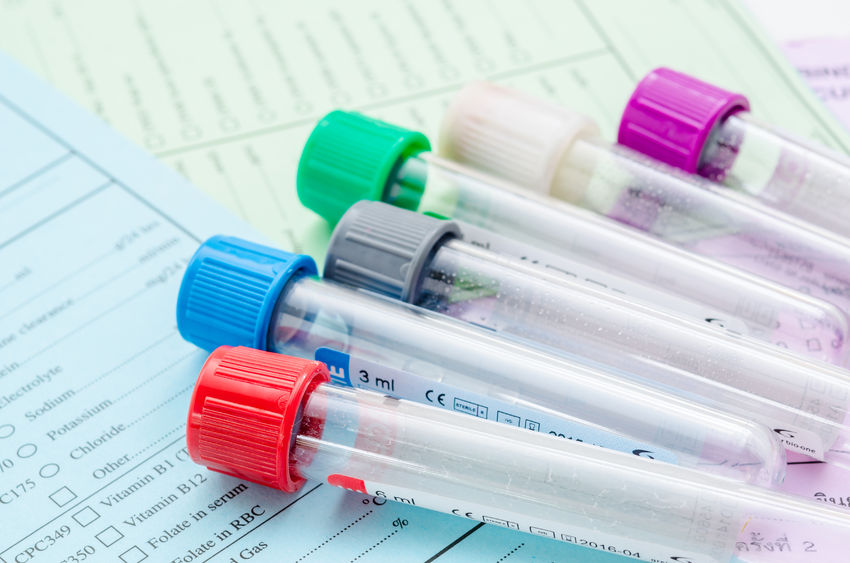
Helicobacter Pylori Antibodies
Also known as Helicobacter Pylori Antibodies Elisa BloodWhat is this test?
This test is used to find out the Helicobacter Pylori antibodies-IgA and IgG in the blood. Antibodies are the protective proteins produced by the immune system and also known as immunoglobulins. Antibodies are produced when any foreign substance or virus or bacteria enters into the body. These foreign substances are known as antigens. Antibodies recognize and attach to the antigens in order to remove them from the body.
What is H.Pylori?
Helicobacter Pylori H. Pylori is a spiral-shaped bacteria and attack the lining of the stomach. Due to its spiral shape, it penetrates into the stomach and gets protected by the mucus. Hence, immune cells are not able to reach them. This bacteria cause serious stomach problems like peptic ulcer, gastritis and most of the stomach ulcers.
What are antibodies and their importance?
Antibodies are in Y shaped and have two large heavy chains and two small light chains. It has Fc region at the bottom of Y. This Fc region is the part of the antibody which attaches to the antigen. Depending on the Fc region, the antibodies are of five (5) subtypes. They are IgG, IgM, IgA, IgD, IgE.
IgG provides long-term protection as it presents in the circulation for long period after the presence of an antigen. IgM is involved in the ABO blood group antigens on the red blood cells (RBC’s) surface. IgM also enhances the ingestion of cells by phagocytosis. IgA is also the first defense for intestine, lungs, and nose. They bind antigens to the microbes before they invade tissues and keeps antigens in secretion and when secretion is expelled, antigens are also expelled. IgD helps in the induction of antibody production and presents on the surface of B-cells. IgE binds to the basophils and mast cells.
Why this test is performed?
This test is performed to check the presence of H.Pylori Antibodies IgA and IgG in blood. The doctor may ask you to undergo this test if you are suffering from conditions such as peptic ulcer, gastritis etc. If symptoms like burning sensation in abdominal pain during the night or after few hours of having food, intestinal bleeding, tenderness, excessive burping, lack of appetite, unexplained weight loss, blood in stools, trouble in swallowing, anemia etc. are seen in an individual, then the doctor may recommend doing this test. If an individual is on the treatment of medications like clarithromycin, omeprazole, amoxicillin, then the doctor may ask to perform this test to evaluate and to check the effectiveness of the treatment and H.Pylori antibodies IgA and IgG levels in the blood. Mostly, this test is done along with other antibody tests to confirm the diagnosis.
Precautions:
Some medications may change the levels of antibodies in the blood and hence you are advised to inform all your current medications to the doctor prior to the test.
Also known as H Pylori Antibodies ELISA Blood, H Pylori Antibodies.
Test Preparation
Inform your doctor if you are on any medications, have any allergies or underlying medical conditions before your Helicobacter Pylori Antibodies. Your doctor will give specific instructions depending on your condition on how to prepare for Helicobacter Pylori Antibodies.
There are no specific preparations required for this test.
Understanding your test results
If the test results are negative it may indicate that there are no H.Pylori antibodies IgA and IgG in the blood and not H.Pylori induced peptic ulcer or gastritis.
In case the test results are positive it may indicate that there are H.Pylori antibodies IgA and IgG in the blood and H.Pylori induced peptic ulcer and gastritis.
Sometimes a false positive may occur as the antibodies may present in the body for a long time even the bacteria have been removed by your immune system.
| Gender | Age groups | Value |
| UNISEX | All age groups | The antibodies are not normally present. IgA antibodies are present in persistent cases |
| UNISEX | All age groups | The antibodies are not normally present. IgG antibodies are present in remote infection cases |